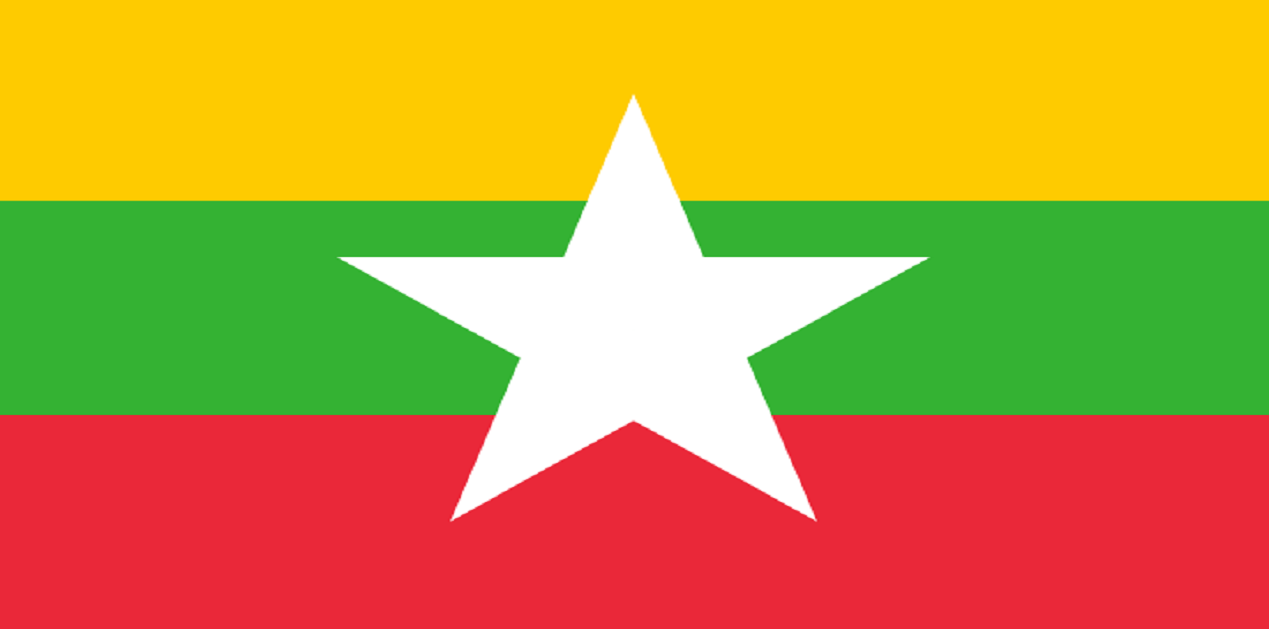Strategically located between the two giant neighbours, India and China; Myanmar has been working on its foreign policy and domestic interests since the beginning of the year 2020. The year 2020 also marked a significant breakthrough in Myanmar democratic transition process with the third general elections conducted in November 2020. The democratic transition was accompanied by efforts from all stakeholders’ side to conclude the Fourth Panglong Peace Conference. Despite, the onset of the second wave of COVID-19 crises, the Myanmar government has been fostering efforts to build an economically more robust and healthier Myanmar back on track. The article below elaborates on the key developments in Myanmar, and the prospects and challenges for 2021.
At the beginning of the year, Myanmar’s leader Aung San Suu Kyi stated that the country stood out as a global exception with zero cases of COVID-19. It was claimed that the lifestyle and diet of Myanmar citizens were protection against the virus. However, on 31 March, the first case was reported, and the country entered second wave of COVID-19 by the end of August. The limited and insufficient response from the side of government, and weak health care infrastructure revealed the country’s deep socio-economic problems, concerning poverty, hunger, internally displaced people and ethnic armed organisations (EAOs). The United Nations (UN) positioned Myanmar in the ‘vulnerable category’, due to its health care system and continuing humanitarian problems.
Economically, the near-collapse of the agricultural sector, migrant crises, rampant unemployment due to closures, and expanding trade deficit were some of the immediate effects of the COVID-19 crises. The World Bank’s Myanmar Economic Monitor projected a decline in the economic growth from 6.8 per cent in FY 2018/19 to 0.5 per cent in FY 2019/20. The government took immediate steps to cushion the impact of COVID-19, such as COVID-19 Economic Relief Plan (CERP), eased deadlines for tax payments, and tax exemptions for Myanmar-owned businesses. The government created a COVID-19 fund with 100 billion kyats to assist garment and manufacturing industry, hotel businesses, tourism businesses, and small and medium-sized enterprises.
Politically, to ensure democracy sets in the country in the true spirit, the National League for Democracy (NLD) attempted to take forward the constitutional amendments to reduce military’s role. However, only four minor proposals were passed out of the total 135 proposed. Thereby, the NLD faced public criticism over lack of intent to pursue its promises made during the 2015 election campaign; and particularly, reaching out to ethnic minority populations, and resolving ethnic strife. Despite criticism, the NLD party led by Daw Aung San Suu Kyi registered a decisive victory, winning 396 of the 498 seats in the bicameral parliament. On the other hand, the Union Solidarity and Development Party (USDP) retained parliamentary seats in eastern and northern Shan State. The election processes, without doubt brought in the news a lot of controversies. The most controversial was the exclusion of areas in Rakhine and Chin states, among others, from voting. According to the New Myanmar Foundation, the violent incidents increased from 28 in 2015 elections to 40 in the 2020 elections.
After winning the election, to build bridges gaps with ethnic parties, the NLD sent an open letter to all the 48 ethnic parties promising to meet their aspirations and sought their cooperation in creating a federal country. It is considered a part of establishing peace and security, as the year 2020 marks numerous events to bring internal stability. At the beignning of 2020, successful conduct of 8th Joint Implementation and Coordination Meeting (JICM) after two years of inactivity was appreciated and attended by State Counselor, Military Chief and ten EAOs, who have signed NCA. The fourth “21stCentury Panglong Conference” was concluded, which was stalled since 2018. All the stakeholders signed Part III of the Union Accord, which includes a framework to implement the Nationwide Ceasefire Agreement (NCA), and basic principles to establish a democratic federal union. Later after the elections, the government and Tatmadaw leaders met to review agreements signed in Fourth Panglong Peace Conference on 08 December.
However, restoring peace in Myanmar, with a history of ethnic insurgencies is a far distant dream. The violence by the Tatmadaw continued unabated during the year and the regions like Rakhine, Chin, Shan and Karen faced the brunt of it. Despite Tatmadaw declaring a unilateral ceasefire on 10 May, it intensified conflict against the Arakan Army (AA) as it strategically excluded the AA from the same. On the other hand, AA declared a ceasefire under the Brotherhood Alliance and kept extending the same till the end of the year. The clashes displaced huge people, and the continuation of internet blockade in Rakhine and Chin States has raised concerns.
Further, the government declared AA as a terrorist organisation and an ‘unlawful association’ in March 2020, thereby escalating clashes, targeting its allies and media persons reporting on it. Press freedom has deteriorated in the country due to journalists’ and internet shutdowns, violating the freedom of expression. The emergence of new-armed groups, such as most recently, the formation of Arakan Rohingya Army (ARA) in north Rakhine state poses a threat to Myanmar security.
However, post-08 November election, there are hopes of restoring peace in the region as Tatmadaw and AA are reported to be in talks. It has been reported that representatives of the Tatmadaw and AA met near Pangshang on 10 December. Also, Tatmadaw supports the demand by AA to conduct election in Rakhine state, the constituencies that were excluded during the elections.
Further, Myanmar was actively involved in fostering relations with other countries and revisiting its foreign policy since the beginnging of the year 2020. The high profile visit by Xi Jinping in January kick started Myanmar engagements with the world countries. This was followed by the visit by Myanmar President U Win Myint to India in February. However, due to COVID-19, the high-level visits were halted for the major part of the year. Nevertheless, by the end of the year, the Indian Foreign Secretary and the Army Chief’s first joint visit in October 2020 was a major highlight.
India-Myanmar relations touched new heights, as both countries collaborated economically and politically; and cooperated to protect each other’s security interests. As mentioned above, the joint visit was significant, as India gifted Myanmar– a Russia’s Kilo-class diesel-electric submarine, the INS Sindhuvir. They also agreed to operationalise the strategic Sittwe port in Rakhine state in the first quarter of 2021, and initiate efforts to complete India-Myanmar-Thailand trilateral highway. A few highlights of India’s strategic achievement during the year were the release of Chin Member of Parliament, U Whei Tin from AA with the help of Mizoram CM Zoramthanga and handing over of 22 insurgents by Myanmar to India. Despite COVID-19 crises, the two countries engaged virtually and India donated medical supplies to Myanmar and pledged financial aid to continue with the “India-Myanmar Border Development Area” project.
The year 2020 also marked the 70th anniversary of China and Myanmar diplomatic relations, but there are reports of increasing discomfort with China’s Belt and Road Initiative (BRI) and illegal supply of weapons from China. China’s ‘Big’ Investments have been questioned due to its rising interference in Myanmar’s economic, political and security dimensions. However, the military support by China gives leverage for further economic collaborations. China has been an active participant in Myanmar’s peace negotiations. In a recent visit of China’s Foreign Diplomat, Yang Yi, the emphasis was on resolving armed conflict in Rakhine and announced a 200 million-Yuan grant for western Rakhine state. The year also witnessed Myanmar at the United States and China’s crossroads, with the two countries exchanging war of words.
Japan has been very active in Myanmar, both politically and economically. Japan has consistently backed Myanmar and brokered a deal between Tatmadaw and AA to conduct elections in Rakhine. When Myanmar faced international condemnation amid allegations of genocide in Rakhine, Japan defended the country. Economically, huge grants and development loans are being offered to Myanmar, and the development of the Thilawa Special Economic Zone (SEZ) and development project in the Yangon City are underway. Myanmar also became part of Russia’s military exercise, Caucasus-2020, which included land and naval exercises.
Internationally, the country continued to draw international criticism due to human rights violations in Myanmar. Black clouds surrounded Myanmar due to the International Court of Justice (ICJ) interim verdict and the publication of the Independent Commission of Enquiry (ICOE) Report. The ICJ verdict imposed emergency “provisional measures” on Myanmar, instructing it to prevent genocidal violence against its Rohingya minority and preserve any evidences. The ICOE report found corroborated evidence and instances of war crimes and excessive use of military force, though refuted to suggest the prevalence of ethnic cleansing and genocide. Nevertheless, it acknowledged the mass displacement of civilians from their villages as a result of the violence.
The year 2020 also marked the three years of Rohingya exodus. The heavy military operations against the Rohingya Muslim minority in August 2017, and without any accountability justice, have led to international condemnation. Moreover, the government continues to block Rohingyas from participation in elections. The City of London Corporation revoked an honour granted to Aung San Suu Kyi in 2017, over the treatment of minority Rohingya Muslims. The European Union and United Kingdom further continued imposing sanctions on Myanmar and its citizens, mostly army generals.
Additionally, in its lawsuit against Myanmar, Gambia filed a memorial, making its case for how the Government of Myanmar is responsible for genocide against its Rohingya population. Nonetheless, significant steps are being taken to support the community internationally. The United States, the European Union, the United Kingdom, and the United Nations High Commissioner for Refugees co-hosted a donor conference and pledged USD 600 million funding, in addition to the USD 636 million in assistance already committed so far.
Prospects and Challenges for 2021
- A mammoth task in 2021 is to ensure adequate health infrastructure to fight the COVID-19 pandemic and ensure robust economic recovery, with increasing employment opportunities, international trade and foreign investments. Tourism sector needs the attention of the government to bring Myanmar back on the recovery path.
- Despite the victory in elections, Aung San Suu Kyi will struggle to balance power with Tatmadaw. Tatmadaw cooperation is necessary for the Government–to reconcile with the EAOs and speedier implementation of the Constitutional Reforms. For example, the government’s non-inclusion in talks between Tatmadaw and AA is a cause of worry. All stakeholders must have equal participation.
- The greatest test of democracy is to ensure inclusion of its minorities. Myanmar struggles with problems of ethnic insurgencies since ages; therefore, it needs to ensure that 2021 brings in implementation of the peace process, so that the country is safe and peaceful. This security would also ensure the economic development of the country.
- With the changing global order in a COVID-19 world, Myanmar has to work on its foreign policy, to avoid over-dependence on China and maintain its neutrality. Since efforts are being made to engage with diverse partners internationally, Myanmar needs to strengthen its domestic interests first.
- India must continue to build on the significant achievements of 2020, especially on building security cooperation with Myanmar. As such cooperation has helped to curtail insurgency at home and would be in India’s interest as Indian connectivity project in Myanmar is stalled due to security problems.
- Efforts must be made to reconcile the interest of Rohingya community.
(The paper is the author’s individual scholastic articulation. The author certifies that the article/paper is original in content, unpublished and it has not been submitted for publication/web upload elsewhere, and that the facts and figures quoted are duly referenced, as needed, and are believed to be correct). (The paper does not necessarily represent the organisational stance... More >>










Post new comment